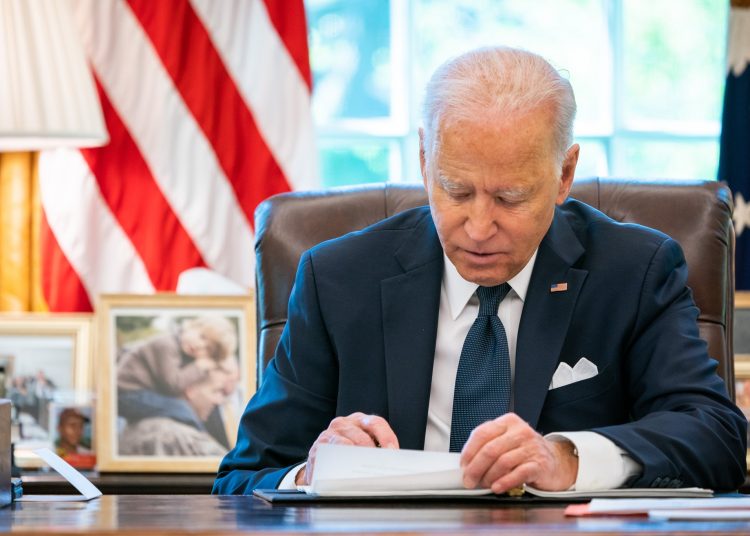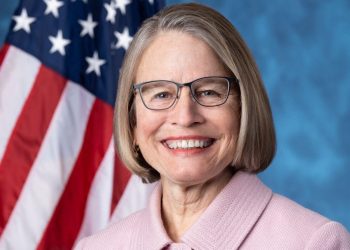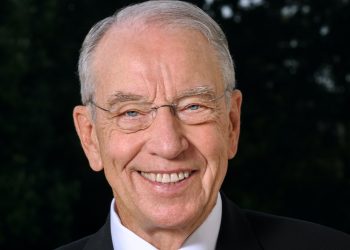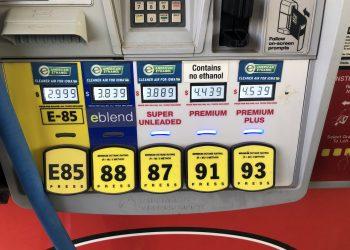DES MOINES, Iowa – President Joe Biden announced on Tuesday that his administration would release 50 million barrels of crude oil from the strategic petroleum reserve.
“Today, the price of gas in America, on average, is $3.40 a gallon; in California, it’s much higher. The impact is real,” the president said on Tuesday afternoon. “But the fact is we’ve faced even worst spikes before just in the last decade. We saw it in 2012 when the price of gasoline hit $3.90. We saw it in 2014 when it hit $3.69. And as recently as 2019, we saw it surpass $3 in many places.”
Biden noted India, Japan, South Korea, and the United Kingdom also agreed to release additional oil from their reserves to attempt to bring the price of oil down.
“China may do more as well,” he added.
Biden is the fourth president to release crude oil from the reserve. President George H.W. Bush released oil due to the Gulf War, and President George W. Bush did as well after invading Iraq. President Barack Obama was the third president to do so in response to rising gas prices.
Republicans pointed out gas prices are a result of Biden administration policies.
U.S. Senator Chuck Grassley, R-Iowa, called the move a “spit in the ocean” during his public affairs program on Tuesday.
“it’s a spit in the ocean compared to the problem that he created almost immediately when he got into office,” he said. “He brought a great deal of uncertainty to the oil and gas industry by taking the actions he did. I don’t know the impact of that uncertainty, but less future for fossil fuels is going to inhibit investment.”
Grassley pointed to the Biden administration shutting down the Keystone XL Pipeline, considering shutting down the Line 5 pipeline running through Michigan that supplies light oil and propane to the upper Midwest and Ontario and Quebec in Canada, putting restrictions on drilling on public land, including offshore drilling in Alaska, and adding restrictions to fracking.
“The United States could be, and for a couple of years was, the biggest producer of natural gas and petroleum, and then go to OPEC and want them to fill in. And then the inconsistency of shutting down pipelines in North America and then encouraging the finishing of the pipeline from Russia, to Germany for their natural gas,” Grassley argued.
He then pointed out the Biden Administration’s focus on developing electric vehicles.
Grassley stated that these actions send “a bad signal” to anyone looking to make future investments in natural gas and oil.
He said reversing his current policies will do more to help the gas prices go down than releasing oil from the strategic petroleum reserve that is meant for a national emergency or national defense.
U.S. Rep. Mariannette Miller-Meeks, R-Iowa, called the decision the wrong approach.
“Tapping the emergency Strategic Petroleum Reserve will not fix the current energy crisis and is the wrong approach. If the Administration is serious about solving the current energy crisis, we must start by rescinding the Executive Order that paused American energy exploration. We must begin to aggressively pursue an all-of-the-above energy strategy that includes oil, natural gas, biofuels, solar, wind, hydro, electric, and nuclear. An all-of-the-above strategy will allow us to decrease our dependence on foreign energy sources such as Iran, Russia, Venezuela, and the rest of OPEC+. This is critical to our economic, energy, and national security and must be addressed immediately,” she said in a released statement.
Miller-Meeks joined 30 of her colleagues in the U.S. House of Representatives sending a letter to Biden and U.S. Secretary of Energy Jennifer Granholm opposing the president’s decision to release oil from the strategic petroleum reserve.
Read the letter below:
21.11.22 MMM Bice SPR














